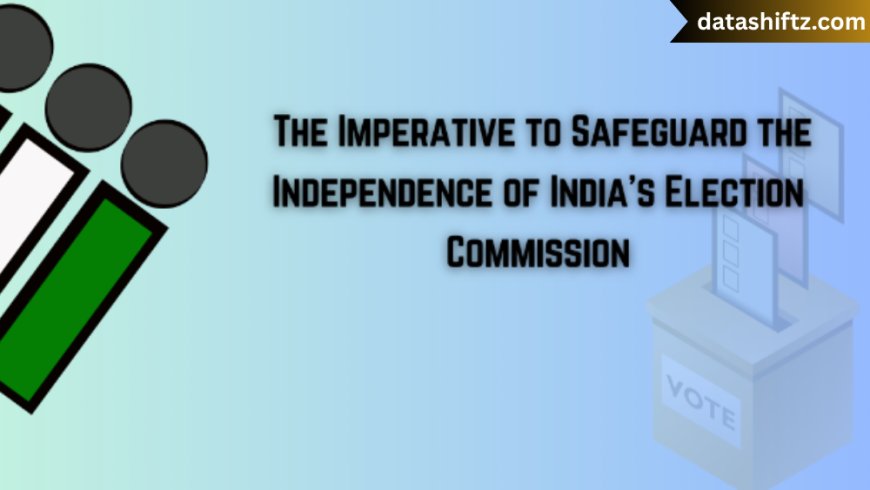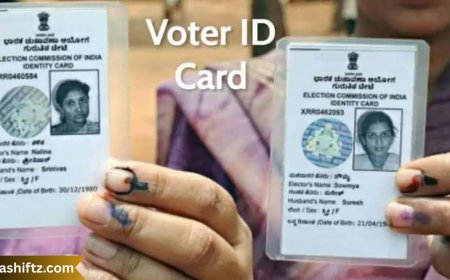State Election Commission: Safeguarding Grassroots Democracy in India

Introduction
In a vibrant democracy like India, elections form the backbone of citizen participation, political accountability, and public governance. While much attention is given to national and state legislative elections overseen by the Election Commission of India (ECI), the State Election Commissions (SECs) play a pivotal yet often overlooked role in managing elections at the grassroots level—urban local bodies and rural panchayats.
Empowered under the Constitution of India, each state has its own independent State Election Commission tasked with ensuring free, fair, and impartial elections at the local level. This article explores the structure, powers, functions, challenges, and significance of the State Election Commission, shedding light on its indispensable contribution to Indian democracy.
Understanding the State Election Commission (SEC)
Constitutional Foundation and Legal Framework
The State Election Commission was established following the 73rd and 74th Constitutional Amendments in 1992, which brought about a historic shift in India’s democratic structure by institutionalizing Panchayati Raj and Municipal Governance.
Key Constitutional Provisions
| Article | Provision | Relevance |
|---|---|---|
| Article 243K | Elections to the Panchayats | Empowers SEC to conduct rural local body elections |
| Article 243ZA | Elections to the Municipalities | Empowers SEC to conduct urban local body elections |
| Article 324 | Superintendence of Elections (ECI) | Basis for comparison with the national election body |
Structure and Composition of State Election Commission
Organizational Hierarchy
Each state and union territory (with legislature) has a State Election Commission, which typically comprises:
Key Officials in SEC
-
State Election Commissioner (SEC): Head of the Commission
-
Secretary: Chief administrative officer
-
Election Officers: At district, taluk, and ward levels
-
Support Staff: IT, legal, logistical, and statistical personnel
Appointment and Tenure
| Criteria | Details |
|---|---|
| Appointed By | Governor of the respective State |
| Eligibility | Usually a retired IAS officer or bureaucrat |
| Tenure | 5 years or until age 65, whichever is earlier |
| Removal | As per conditions of a High Court judge |
Functions and Powers of the State Election Commission
Major Responsibilities of SEC
Constitutional and Administrative Roles
-
Conducting Elections for:
-
Panchayats (Village, Intermediate, District levels)
-
Municipalities (Municipal Corporations, Councils, Nagar Panchayats)
-
-
Preparing Electoral Rolls
-
Revising and updating rolls regularly
-
Addressing objections and claims
-
-
Delimitation of Wards
-
Determining constituency boundaries based on population
-
-
Model Code of Conduct
-
Enforcing fair practices among candidates and parties
-
-
Monitoring Election Expenditure
-
Setting limits and auditing candidate expenses
-
-
Deployment of Personnel
-
Appointing observers, presiding officers, and polling staff
-
-
Declaring Results
-
Official announcements and publication of winners
-
-
Handling Complaints & Disputes
-
Ensuring peaceful conduct and handling legal challenges
-
Comparison with Election Commission of India (ECI)
| Feature | Election Commission of India (ECI) | State Election Commission (SEC) |
|---|---|---|
| Jurisdiction | Lok Sabha, Rajya Sabha, State Assemblies | Panchayats and Municipalities |
| Appointment Authority | President of India | Governor of the State |
| Legal Framework | Article 324 | Articles 243K and 243ZA |
| Autonomy | Constitutionally independent | Constitutionally independent |
| Common Voter List | Yes (attempt for single electoral roll) | Separate (in most states) |
Challenges Faced by State Election Commissions
Despite their critical role, State Election Commissions grapple with several hurdles:
Institutional and Operational Challenges
Key Difficulties
-
Political Interference
-
Pressure from ruling state governments
-
Delays in conducting timely elections
-
-
Inadequate Infrastructure
-
Lack of funding, human resources, and technology
-
Reliance on state government machinery
-
-
Legal Ambiguity
-
Limited clarity on powers regarding disqualification, recounts, etc.
-
Conflicts with State Election Laws
-
-
Delimitation and Reservation
-
Resistance in redefining ward boundaries
-
Conflicts on implementation of OBC and Women’s reservations
-
-
Voter Awareness
-
Lower turnout in local elections due to lack of engagement
-
-
COVID-19 Impact
-
Deferred or postponed elections disrupted democratic continuity
-
Judicial Interventions Strengthening SEC Autonomy
The Supreme Court of India has repeatedly upheld the independence of State Election Commissions. Key verdicts include:
Notable Case Laws
| Case Name | Verdict Summary |
|---|---|
| Kishan Singh Tomar v. Municipal Corporation (2006) | SEC cannot delay elections arbitrarily |
| Goa State Election Commission Case (2021) | Independence of SEC cannot be compromised; SEC cannot hold additional government office |
Role of SECs in Strengthening Democracy
Deepening Local Governance
By ensuring transparent and regular elections to urban and rural local bodies, SECs enable the decentralization of power, allowing citizens to directly influence governance at the grassroots.
Empowering Marginalized Communities
SECs oversee the implementation of reservation policies for:
-
Scheduled Castes (SCs)
-
Scheduled Tribes (STs)
-
Other Backward Classes (OBCs)
-
Women (33% reservation, now being increased)
This ensures inclusive representation in governance.
Technological Innovations in Local Elections
Many State Election Commissions have adopted digital tools to streamline operations:
Digital Innovations by SECs
| State | Technological Innovation | Outcome |
|---|---|---|
| Maharashtra | Online Nomination Portal | Contactless filing during COVID-19 |
| Tamil Nadu | e-Voting Pilots in Urban Areas | Increased accessibility |
| Karnataka | GIS Mapping of Polling Stations | Efficient booth management |
| Telangana | Face Recognition for Voter Verification | Pilot for secure authentication |
Suggestions for Reform and Future Roadmap
Steps to Strengthen SECs
Key Recommendations
-
Financial Independence
-
Direct fund allocation from consolidated funds of the state
-
-
Unified Electoral Roll
-
Coordinate with ECI to use a single updated roll
-
-
Legislative Clarity
-
Amend state laws to clearly define SEC powers and responsibilities
-
-
Use of Technology
-
Implement secure e-voting, biometric verification, and mobile apps
-
-
Capacity Building
-
Train election officers on ethics, technology, and dispute resolution
-
-
Fixed Timeframe for Local Polls
-
Avoid political delays in conducting municipal or panchayat elections
-
Conclusion
The State Election Commission stands as a cornerstone of India’s third-tier democracy, facilitating citizen participation beyond state and national boundaries. Though it operates with limited visibility and resources, its role in preserving democratic principles at the grassroots level is both vital and transformative.
As India moves forward with ambitious goals for digital governance, gender equality, and decentralization, empowering the State Election Commissions with resources, independence, and legal clarity will be key to strengthening the democratic spirit in every village, town, and city.




























